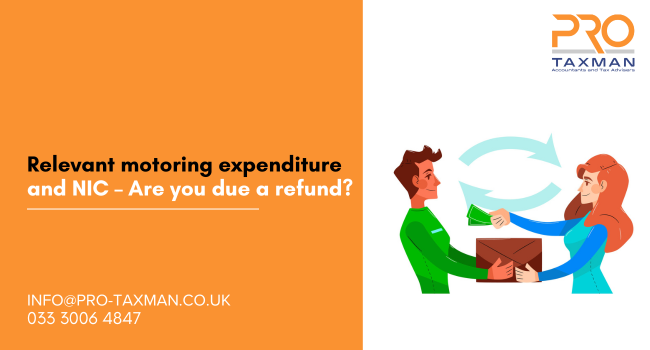For tax purposes, where an employee uses their own car for work, mileage allowances can be paid tax-free up to the approved amount, which is simply the business mileage for the year multiplied by the approved rate (which for cars and vans is set at 45p per mile for the first 10,000 business miles in the tax year and at 25p per mile for any subsequent business miles).
Similar but not identical rules apply for National Insurance, and amounts classed as ‘relevant motoring expenditure’ (RME) are disregarded from the computation of earnings for National Insurance purposes as long as they do not exceed the qualifying amount. As National Insurance is calculated on a non-cumulative basis, the qualifying amount is the business miles in the earnings period multiplied by the approved rate, which for cars and vans is 45p per mile regardless of the number of business miles in the tax year.
Tribunal decision
In a recent decision, the Upper Tribunal found that the type of payments that can fall within the definition of RME was wider than the definition applied by HMRC. More specifically, the tribunal found that the definition of RME was not limited to payments for actual use of the car; it also applied to payments in relation to potential and anticipated used of the employee’s car for business purposes. This means that where an employee has been paid a car allowance, the amount that is disregarded for National Insurance purposes may be higher than previously believed by HMRC – the allowances count as RME and should have been disregarded for National Insurance purposes up to the qualifying amount. Consequently, National Insurance contributions may have been paid where under the revised definition of RME they would now not be due.
For example, if an employee is paid a monthly car allowance of £300 and in one month undertakes 500 miles, the qualifying amount is £225 (500 x 45p). Therefore, £225 of the allowance should now be disregarded for National Insurance purposes. Under the narrow definition previously applied by HMRC, the car allowance was not treated as RME and the full amount was treated as earnings for National Insurance purposes.
Claiming a refund
Employers who have paid National Insurance which under the wider definition of RME would not have been due may be able to correct the position via Real Time Information (RTI). Where this route is taken, claims must be substantiated on a pay-by-pay period basis. HMRC will require the following evidence:
- a list of employees included in the claim, together with their National Insurance numbers;
- evidence of the business mileage undertaken by each employee;
- the amount of the car allowance payments received by these employees;
- details of any other RME payments received by the employees (such as mileage payments); and
- the primary and secondary Class 1 National Insurance contributions that are being reclaimed.
Where it is not possible to correct an overpayment through RTI, claims can be made in writing to HMRC using the reference ‘Relevant Motoring Expenditure’. The claim must include the details listed above, together with an explanation as to why a correction cannot be made through RTI.
Employers paying car allowances to employees who use their own cars for business should review their records to see if they are entitled to a refund.
Need professional accounting service or tax advice? Contact us to book a 15-min Free Consultation with us today.
To find out more please follow us on Facebook, Twitter, or LinkedIn. Feel free to contact us on 0333 006 4847 or request a call back by texting 075 6464 7474

